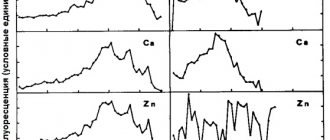L-carnitine, a vitamin as a single agent and as one of the ingredients in combination with various amino acids, energy drinks and phytoextracts, has today gained wide popularity in the market of dietary supplements. Among its consumers are people who want to lose weight or achieve the best athletic results, as well as those who take it for health purposes. Its use in medicine and sports will be discussed in this article, where we will try to answer the question: what beneficial properties of L-carnitine made it so popular, occupying the top positions of numerous ratings of sports nutrition and dietary supplements?
L-carnitine in its optimal natural form and dosage is found in beekeeping products - such as pollen, royal jelly and drone brood, which are part of many natural vitamin and mineral complexes: "Leveton P", "Elton P", "Leveton Forte" , “Elton Forte”, “Apitonus P”, “Osteomed”, “Osteo-Vit”, “Osteomed Forte”, “Eromax”, “Memo-Vit” and “Cardioton”. That is why we pay so much attention to each natural substance, talking about its importance and benefits for a healthy body.
Discovery of carnitine
More than a century has passed since the discovery of carnitine, and today its effects are well studied, although by no means completely. This substance was extracted almost simultaneously, in 1905, by the Moscow chemists V. Gulevich and R. Krimberg from muscle tissue and the German F. Kucher. Based on its source, the substance was called carnitine (from the Latin carnis, which means “meat”). Only two decades later it was possible to reveal the structure of the new compound. In the 50s, it was actively studied by A. Frenkel, who discovered that it is an essential nutrient, without which the growth of the larvae of Tenebriomolitor, a flour beetle, is impossible, from which it was concluded that L-carnitine as a growth factor belongs to the group of B vitamins. However, as It turned out later that for humans, unlike insects, it is not essential, that is, it is synthesized by the body itself, which means that it cannot be called a vitamin in the strict sense of the word. In 1958, its effect on fat oxidation was established, and in the 60s it was able to be synthesized in the laboratory. A lot of scientific publications have appeared revealing the role of L-carnitine in the human body and the prospects for its use. Since the 80s, widespread production and use of levocarnitine for therapeutic and sports purposes has become possible.
Recommendations for use during menstruation
For women, taking levocarnitine is a guarantee of maintaining good shape and physical health. And during periods of menstruation it will help to avoid excessive irritability and general lethargy.
However, on such days it is recommended to reduce the usual dose of the substance to a minimum or take the drug every other day. This is explained by the fact that physical activity in women decreases during this period and training is most often not carried out.
What is L-carnitine from a biochemical point of view?
It is worth deciding what L-carnitine is, because there is some terminological confusion that can confuse you. So, this amino acid, also known as levocarnitine, is sometimes referred to as vitamin Bt or B11, but classifying it as a vitamin, as we have already found out, is an outdated point of view. Rather, in terms of its functions, it is an organic vitamin-like substance . It is also close to amino acids, but cannot be classified as one of them due to the absence of the NH2 amino group necessary for all amino acids.
It would not be a mistake to call it a metabolic agent , since it is involved in important metabolic processes, primarily lipid (fat) metabolism. Its most important mission in our body is the delivery of fatty acids to those parts of the cells where energy is produced for physical activity, and specifically in the mitochondria. So let’s boldly call it a vehicle . It is also true that it belongs to the group of coenzymes - compounds that seem to spur enzymatic reactions, because oxidative processes occur in mitochondria under the control of L-carnitine.
Consumers of dietary supplements often ask whether there is a difference between the concepts of “carnitine” and “L-carnitine”. Yes, there is a difference. Carnitine is the general name of a substance that has two forms, two optical isomers - L and D. Only the L-form of carnitine has beneficial properties for the human body, and only it is synthesized in the human body, and the D-form is antagonistic in action and harmful to it. So our story is dedicated only to levocarnitine – the L-isomer.
Pure L-carnitine is a colorless or whitish powder, the crystals of which easily absorb moisture from the air (hygroscopic) and quickly dissolve in water, which makes it possible to produce various types of preparations: syrups, ampoules and bottles of solution, capsules and tablets.
With alcohol
Nothing bad happens when drinking strong drinks while taking carnitine medications. No negative consequences or side effects of the interaction were identified.
But we must not forget how alcohol works. It reduces performance and inhibits mental activity. This means that the training will not be able to proceed at full strength, as usual.
In addition, alcohol supplies the body with useless calories that do not carry nutrients. During physical activity, it is these calories that are consumed first, thereby delaying the results of training.
It turns out that levocarnitine is wasted.
The effect of L-carnitine on the human body
Formed mainly in the liver and in smaller quantities in the kidneys and brain with the participation of a number of vitamins, amino acids lysine and methionine, iron and enzymes, levocarnitine is delivered by blood to various organs. The action of L-carnitinan in the human body is primarily to perform energy and metabolic tasks : it helps fatty acids penetrate mitochondria, which can be compared to cellular power plants. As a result of the oxidation of fat molecules in mitochondria, molecules of ATP, or adenosine triphosphate, are produced - the most important source of our physical activity and energy for internal biochemical interactions. At the same time, levocarnitine itself cannot be called a fat burner; it is a necessary transport link in this process, which means that the rate of burning fuel—fat—depends on its work. It is also involved in the purification of mitochondria and cytoplasm from residual energy generation products. A number of its properties and the effects it produces are associated with the main function of L-carnitine.
- The antihypoxic effect of levocarnitine is due to the fact that it enhances anaerobic, that is, without access to air, mechanisms of energy supply to the body by converting fat into ATP. As a result, less oxygen is consumed for energy needs, and tissues experience less oxygen starvation, which is why L-carnitine is successfully used in the fight against hypoxia.
- Carnitine protects blood vessels and the heart by reducing the level of so-called “bad cholesterol,” or scientifically, low-density lipoproteins, which are deposited on the inner walls of blood vessels, narrowing them and forming plaques that impede blood flow. The cardio- and vasoprotective effect of levocarnitine is also associated with the improvement of metabolic processes and nutrition of the heart muscle, as well as with the antioxidant activity of this substance.
- Experiments have repeatedly noted a significant anabolic effect from the use of L-carnitine, namely: along with a decrease in fat, athletes experienced an increase in muscle tissue. Scientists explain this by strengthening the secretory function of the stomach and increasing appetite, increasing the metabolism of phospholipids and digestion of proteins, as well as improving the transmission of nerves. impulses. At the same time, carnitine works as an anti-catabolic , preventing the destruction of protein molecules. By the way, it significantly reduces the consumption of carbohydrates for energy needs, helping to create glycogen reserves in the liver and muscles.
- With increased activity of the thyroid gland, causing hyperthyroidism, or thyrotoxicosis, this vitamin acts as an antagonist of the hormone thyroxine and helps normalize hormonal levels .
- As a neuroprotector, L-carnitine has proven itself by providing neurons (nerve cells) with energy, improving neurotransmission, maintaining metabolic processes and detoxifying substances that can disrupt them.
- Improving mental and physical performance , increasing overall tone and mood, and endurance directly depend on the role of carnitine in energy processes.
- Levocarnitine increases the blood’s ability to bind carbon dioxide, that is, it increases its alkaline reserve, therefore it helps fight acidosis - excess lactic acid (lactate) in the body, normalizing the acid-base balance .
- The detoxifying activity of carnitine manifests itself in neutralizing the effects of toxic organic acids and substances foreign to the body.
- Levocarnitine has a beneficial effect on male reproductive function , increasing the concentration and activity of sperm in the seminal fluid.
- The antioxidant, regenerating, anti-stress and adaptogenic properties are also known .
With nicotine
Nicotine can depress the nervous system. After a person develops nicotine addiction (usually after several weeks of smoking), irritability and anxiety appear. Addiction has both a physical and psychological side.
Taking L-carnitine will help you gradually get rid of this addiction. Due to the neuroprotective properties of the substance, the psycho-emotional effects of nicotine are suppressed. And the large amount of energy that is produced with the help of l-carnitine replaces the physical need for smoking.
Thus, levocarnitine is able to reduce the craving for smoking and reduces the negative effects of nicotine on the body.
How is L-carnitine used in medicine?
The ability to optimize metabolism and energy metabolism, improve immunity and the body’s adaptation to different conditions, restore strength and enhance tissue nutrition - all these properties allow the use of L-carnitine in clinical practice:
- in cardiology : in case of cardiac pathologies (primarily heart attack), levocarnitine reduces their damaging effect, stops the area of tissue necrosis, reduces arrhythmia, and promotes the restoration of the myocardium and its functions. The fact is that the oxidation of fatty acids in mitochondria is the leading energy source of cardiac activity. And with ischemia, that is, a local circulatory disorder, the reserves of carnitine, a carrier of fatty acids, quickly dry up. Therefore, it is advisable to additionally introduce it into the body of patients, including to increase their resistance to physical stress. Levocarnitine also reduces the harmful effects of oxygen starvation on the heart that occurs during vascular spasms;
- in neurology : for strokes, neurodegenerative disorders, encephalopathy, disorders of cognitive processes (thinking, memory, perception), dementia, anorexia nervosa, head injuries L-carnitine can be used as a means of normalizing cerebral circulation, which helps nourish neurons and restore their functions;
- in pediatrics : L-carnitine is prescribed as a metabolic agent for infants in cases of hypoxia and trauma at birth; in case of prematurity, lagging children in physical development, malnutrition, low muscle tone, lack of appetite;
- in gastroenterology : in case of liver cirrhosis, it helps reduce the level of toxic ammonia in the body; for diseases of the pancreas to stimulate the production of gastric juice;
- in andrology : for the treatment of male infertility;
- carnitine is also prescribed to patients with kidney pathology who are on hemodialysis; people with metabolic abnormalities causing deficiency of this substance; elderly people to prevent the development of senile dementia; for effective recovery in the postoperative period and in a number of other cases.
Features of taking L-carnitine and dosage
The benefits and harms of L-carnitine for women and men depend on the dose. An amino acid overdose can lead to serious adverse reactions.
For carnitine deficiency, the drug is prescribed in the form of capsules or tablets that are taken orally. The dosage is calculated individually based on age and body weight.
If a person has impaired kidney function and is on hemodialysis, L-carnitine is prescribed in the amount of 2-4 g per day in the form of capsules or tablets. Possible intravenous administration with a dosage of 2 g per day after hemodialysis.
Parenteral (into a vein) L-carnitine is recommended for use in acute conditions. For acute myocardial infarction, the drug is administered in an amount of 200 mg per 1 kg of body weight. This dose is divided into 4 injections. Carnitine is administered slowly. Drip administration is also allowed for 48 hours without interruption. Then the dose of carnitine is reduced by 2 times. After the patient is discharged from the hospital, he is prescribed L-carnitine in tablets or capsules.
How is L-carnitine useful for athletes and those wishing to lose weight?
Levocarnitine is especially popular as a sports nutrition product. Without being a doping and not being included in any register of substances prohibited in sports, L-carnitine is useful for athletes due to a number of properties:
- helps to gain muscle mass, promoting fat burning ; especially useful for dry drying the body, giving the effect of drawing the pattern of veins; is anabolic and catabolic at the same time;
- increases the athlete’s energy, as it promotes the production of ATP. Increases performance and endurance during both aerobic and anaerobic exercise;
- promotes recovery during the post-exertion period;
- protects the heart and blood vessels under high stress during intense physical activity; is an adaptogen, helping the athlete adapt to increasing loads;
- has antitoxic, antistress, antioxidant, antihypoxic effects , which is important when athletes are under extreme and simply high loads.
As part of bee pollen, levocarnitine is included in natural complex preparations for athletes and people leading an active lifestyle: “LevetonP”, “Elton P”, “Leveton Forte”, “Elton Forte”, “Apitonus P”, “Eromax”, etc.
In order to get rid of excess weight, simply taking L-carnitine is not enough; physical activity is also necessary, since this substance begins to work (burn fat) only when we perform active muscle work. It is this feature of levocarnitine that is associated with negative reviews about its supposed ineffectiveness. This is a means of losing weight for active and mobile people, as well as those who know how to control their appetite, because by increasing metabolism, it also increases the desire to eat. In this case, consuming fiber comes to the rescue, creating a satiating effect.
Final word
The key point is that when used correctly, L-Carnitine improves both your workouts and your physique. In the gym you will experience increased pumping and increased endurance, and in the mirrors you will see more muscles and less fat. And despite what you may have read earlier, carnitine is completely safe.
In short, don't be afraid of L-carnitine. Read about it, learn how to use it correctly, and you will have a great tool for your arsenal!
Carnitine at Gerkules12.ru
Dymatize Acetyl L-Carnitine
A more active form of carnitine. Helps in converting fats into energy, energizes you in aerobic and strength training.
Sport Line L-Carnitine
High-quality L-carnitine of pharmaceutical grade. Used to increase productivity, lose weight and strengthen the cardiovascular system!
Power System L-Carnitine Attack
L-carnitine is an amino acid for fighting fatigue, increasing performance and getting rid of excess fat.
Is it possible to have excess and deficiency of carnitine in the body?
Carnitine deficiency in the body can be associated with various pathologies in the heart, liver, kidneys, thyroid gland, as well as metabolic disorders, since in these cases its natural reserves are intensively spent, and their replenishment is difficult. Often, weakened, poorly nourished children suffer from a lack of this substance, since the full synthesis of their own carnitine is absent until about 15 years of age. At risk of developing carnitine deficiency are athletes and dieters, as well as vegetarians who do not consume foods rich in this compound (meat, fish, cottage cheese). Therefore, all these categories can be recommended to take it in the form of supplements. Its deficiency may be indicated by metabolic disorders, excess weight, muscle weakness and spasms, cardiovascular disorders, chronic fatigue, and weak immunity.
As for its excess in the body, scientists say that such a condition is impossible, since all excess, undigested carnitine is simply excreted from the body without any terrible consequences.
L-carnitine for pregnant and nursing mothers
The official instructions for the drug say that L-carnitine can be used by pregnant and nursing mothers. But this question still remains open. During pregnancy, nature has created optimal conditions for the development of the baby. And an additional load in the form of vitamin supplements or amino acids can disrupt the smooth process.
This is interesting: Beneficial properties of guarana
Despite all the beneficial properties of L-carnitine, here it can only cause harm. Not only a deficiency, but also an excess of protein in the body has a detrimental effect. You should be especially careful in the first trimester of pregnancy, when the formation of the internal organs of the fetus occurs.
Daily norm of carnitine
The daily requirement of carnitine depends on age. Up to one year it is equal to 15 mg/day, from one to 3 years - 50, from 3 to 5 years - 90 mg, by adulthood it reaches 300 mg. Of course, in cases of use for therapeutic purposes, the individual dosage should be determined by the doctor. For sports purposes, the use of L-carnitine is guided by a dosage of 500 mg to 2 g / day in 2-3 doses. It is pointless to take a larger amount of this substance, since it will not be absorbed anyway. It is better to drink the supplement on an empty stomach and about half an hour before starting a workout.
Of the side effects of carnitine, only the possibility of allergic reactions and dyspeptic disorders is noted in case of individual intolerance.
Release form and composition
For the convenience of consumers, levocarnitine is available both in the form of tablets and capsules, and in the form of syrup.
L-carnitine syrup is packaged in dark 100 ml bottles. One package of syrup contains up to 10 g of levocarnitine. Additional ingredients include fructose.
The tablets are packaged in quantities of 10 pieces in contour cells. They, in turn, are located in cardboard packs of 5, 3, 4 or 6 pieces. One tablet contains 100 or 500 mg of levocarnitine and 30 mg of ascorbic acid.
L-carnitine capsules are packaged in polymer bottles of 150 or 60 pieces. One capsule contains 250 or 500 mg of active ingredient.
L-carnitine in food
Considering that the body independently produces only about 25% of the levocarnitine we need, and we must receive the remaining 75% from the outside, knowledge about the content of L-carnitine in food products will not be superfluous. The main source of this substance is meat food. Depending on the preparation, that is, the degree of heat treatment, it is present in the following quantities: beef - 40-50 mg/100 g, pork - 12-25 mg, rabbit - 20-25 mg, turkey - 13-15 mg, chicken - 8–10 mg. Various types of fish and seafood are also rich in carnitine: crayfish – 15 mg/100 g, salted herring – 4 mg, perch – 5 mg, canned tuna – 3 mg, boiled mussels – 3 mg. If you do not eat animals, but consume dairy products, you can also replenish your internal reserves of carnitine, as it is contained in: milk - 3.5–4 mg/100 g, cream - 3.5 mg, condensed milk - up to 10 mg, cottage cheese – up to 3 mg, yogurt – up to 4 mg. There is very little of it in products of plant origin: vegetables - no more than 1 mg, nuts - 0.05-0.08 mg/100 g, fruits - only 0.002-0.006 mg. True, mushrooms containing up to 4 mg/100 g L-carnitine come to the aid of vegetarians. So the recommendations for vegans to take additional L-carnitine are quite justified. In general, diversify your menu, and if necessary, do not neglect dietary supplements and be healthy!
With sports nutrition
Taking L-carnitine in addition to sports nutrition is an ideal way to get into good physical shape. BCAA combines the essential amino acids leucine, isoleucine and valine. The product restores muscle micro-tears caused during strength training and maintains tone. Levocarnitine starts the process of fat metabolism.
When combined with intense training, these nutrients help achieve:
- burning fat while maintaining muscle definition, losing weight;
- gaining muscle mass and increasing volume.
If the main goal is to gain weight and obtain a more pronounced relief, you need to adhere to the following scheme:
- morning intake of BCAAs;
- before training, an hour - BCAA along with L-carnitine;
- BCAAs immediately after exercise;
- BCAAs at night.
For fat burning and weight loss, the scheme is slightly different from the previous one:
- 30 minutes before the first meal in the morning - take both drugs together;
- before exercise, an increased dose of L-carnitine;
- BCAAs during training;
- a portion of BCAA immediately after activity;
- L-carnitine one hour before dinner;
- BCAAs before bed.
Attention! When switching to a new nutrition system, you should start with small dosages of drugs, gradually increasing them. The body’s adaptation will take place correctly and the results will not take long to arrive.
What to eat while taking L-carnitine
The main benefit of L-carnitine is its fat-burning effect and the ability to build muscle mass. But no means will help in the absence of physical activity and proper nutrition. Therefore, when taking L-carnitine for the purpose of losing weight, a diet is required. It is necessary to exclude the following foods from the diet as much as possible:
- easily digestible carbohydrates (sweets, flour);
- fatty foods;
- fried foods;
- smoked meats and spices.
This is interesting: How to remove oily shine from your face
Preference should be given to vegetable fats, vegetables and fruits, lean meats (rabbit, chicken fillet).
Contraindications and side effects
Long-term use of liquid Carnitine (more than 1.5 months) or overdose (more than 6 g per day) causes side effects:
- fishy odor from the body, urine, sweat;
- digestive disorders;
- eating disorders in the form of overeating;
- nervous disorders: hyperactivity;
- manifestations of allergies in the form of shortness of breath, nasal congestion, skin rashes, swelling;
- increased blood pressure and body temperature;
- cardiopalmus.
Taking Carnitine has direct contraindications:
- carnitine level is normal;
- allergy to protein products;
- kidney disease (dialysis);
- epilepsy;
- hypertension;
- diabetes;
- atherosclerosis;
- pregnancy, lactation;
- hormonal imbalances caused by thyroid pathologies;
- nutritional disorders in the form of fasting, mono- and protein diets;
- taking medications to prevent cancer.
If unusual effects or conditions occur, you must immediately interrupt the course and consult a doctor.
Reviews from doctors
Mironov Oleg Anatolyevich, 40 years old, Omsk I am a nutritionist. A lot of girls come to me wanting to lose weight. In addition to a healthy diet, I prescribe L-carnitine for weight loss. It has a lot of useful properties. But we must remember that this is not a panacea. Efficiency is achieved only in combination with diet and physical activity. Boyko Angelina Petrovna, 35 years old, Moscow My specialization is cardiology. While everyone uses L-carnitine for weight loss, I prescribe it in the complex treatment of acute heart attack. Together with other drugs, it has a beneficial effect on the contraction of the heart muscle and normalizes the functioning of this organ.











